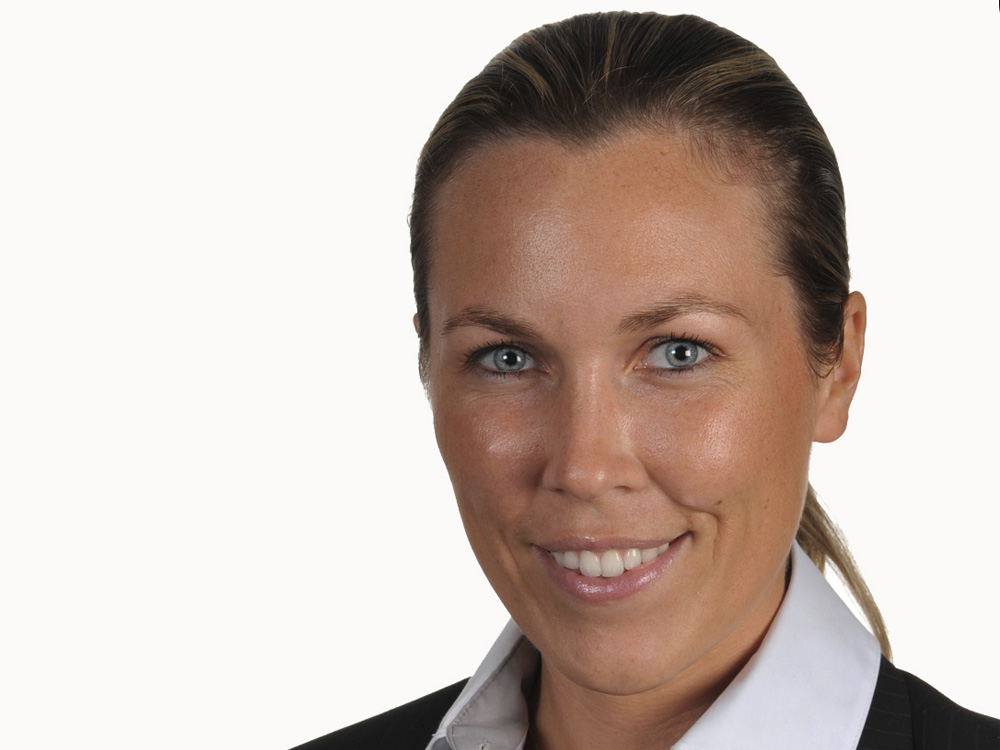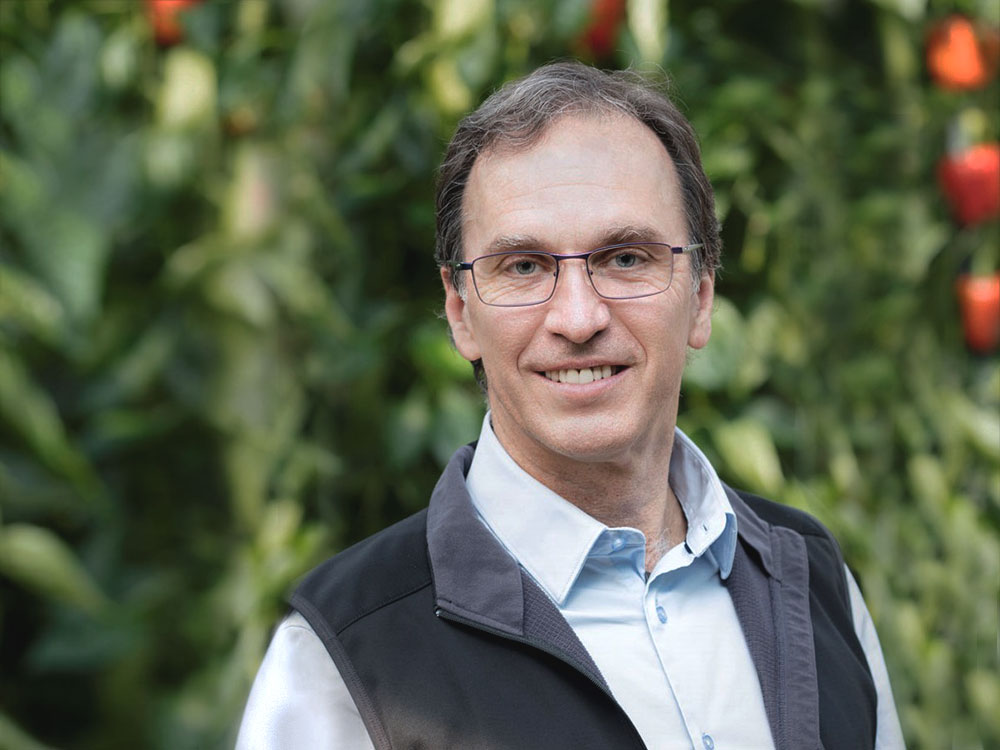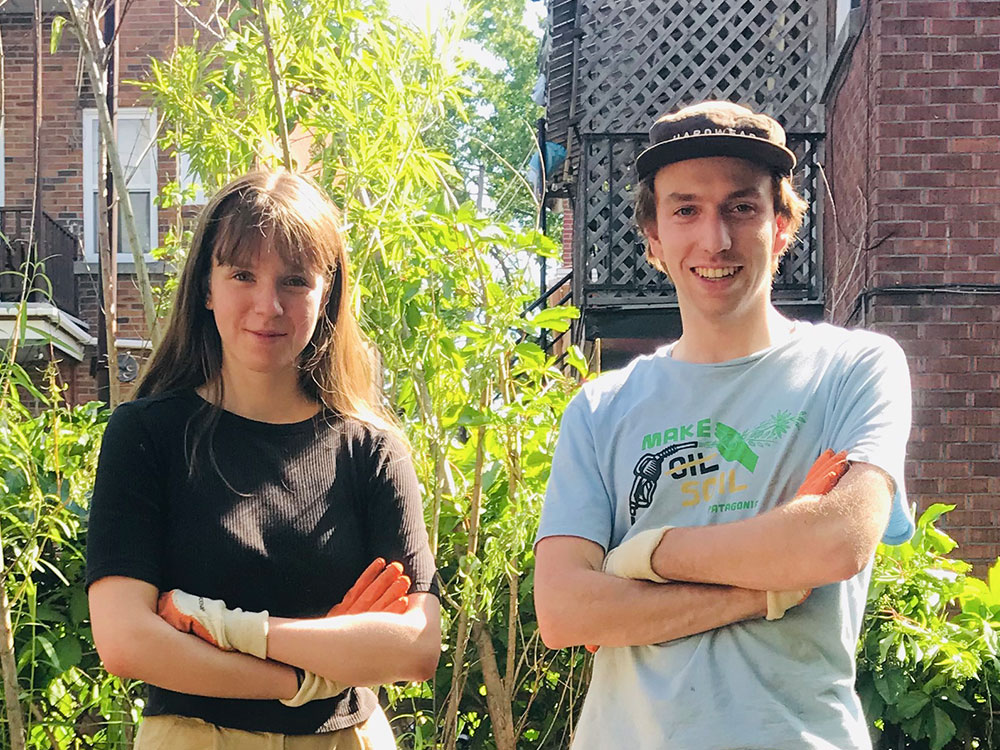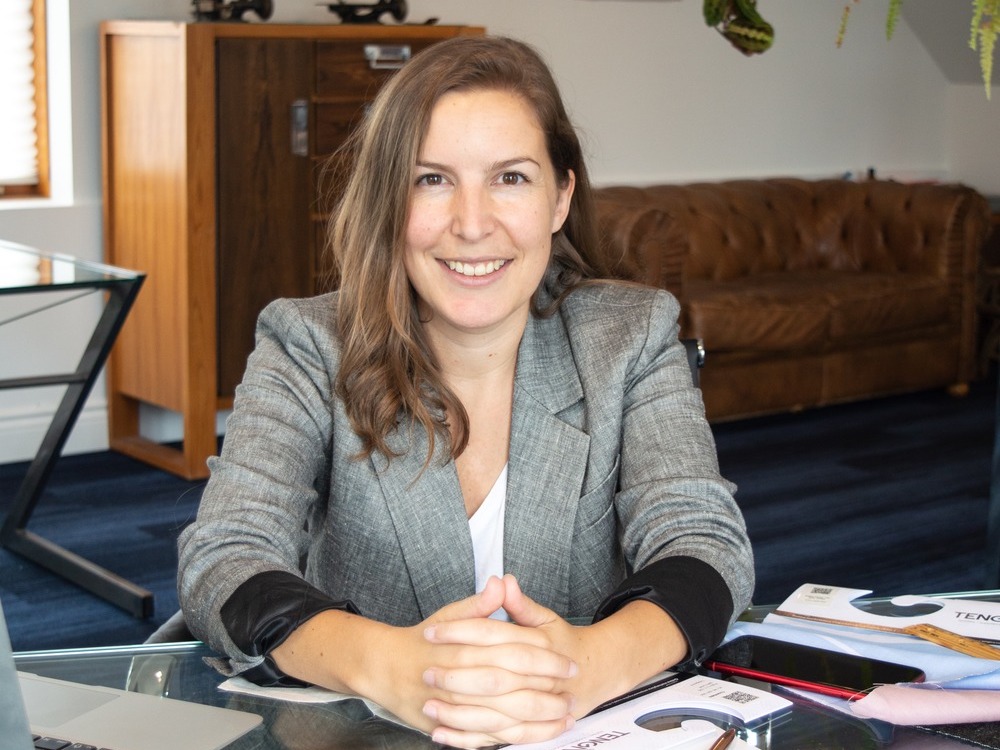
Tristan: The agility to innovate
Lili Fortin’s Story
Tristan’s story first began in 1973, when Gilles Fortin and Denise Deslauriers bought Saint-Jean-sur-Richelieu clothing boutique Tristan and Iseault with plans to grow the company. For as long as she can remember, Lili Fortin and her siblings have been exposed to the inner workings of the family business. “Before I even knew what cash flow was, I helped with the preparation of financial statements,” Lili recalls.
In her late teens, Fortin joined the company as a salesperson. While she was in CEGEP, Gilles Fortin opened a hair salon in one of the downtown stores, but quickly realized that managing it was difficult. Lili therefore took charge of the running of this small business in order to make it profitable. Next she took control of the American division of Tristan. An MBA soon followed (at the suggestion of Gilles Fortin), as well as international experience in the manufacturing industry in Hong Kong and the parallel development of a range of projects for Tristan while she was living in Asia.
The takeover
In 2011, Lili returned to Canada to work at Tristan as the director of business development. She headed operations and evolved the business, particularly by adding shoes, a category that in her opinion complemented the company’s raison d’être. Then she took on the title of president in 2017. When she became president, Lili knew she wanted to continue her parents’ mission while maintaining the same company values. She therefore continued to focus on quality, respect for her employees, their products and clients across every decision that was made.
“On the other hand, as a brand, you have to constantly renew yourself and manage to continue to do what you’ve always done well while keeping it fresh. Even while being able to take advantage of a significant reputation, in a highly competitive environment that includes more and more international players, we have to remain responsive to stay in the game.”
Lili Fortin
Prioritizing local skills
Since the very beginning, local Quebec know-how has been important to the Fortins. It was for this reason that Gilles Fortin acquired the Cookshire plant in Estrie in 2004, which he modernized at significant cost. Tristan also owns a production facility in Farnham.
As Lili explains, the decision to buy the plants at a time when most operations had relocated to Asia was risky. In order to ensure it remained busy, the Cookshire facility began producing uniforms for National Defence, the Sûreté du Québec and other more institutional agencies. Through thick and thin, Tristan always kept a portion of its production here in the province, even if this meant accepting a reduced profit margin.
Pure entrepreneurship
Then, in mid-March of 2020, came a shock. In the face of the pandemic, which forced the closing of their points of sale and a reduction in production, the company needed to effect temporary layoffs. It was a worrying interruption for Lili: “We fought all our lives to keep our expertise and skills in Quebec which, it should be emphasized, is a less and less popular decision. If we lose these workers it will be very hard to replace them.”
Then, immediately thereafter, Lili received a request asking if her factories could produce medical visors. As explained in this article from La Presse (in French), the entrepreneur made masterful use of the opportunity and was able to set up a production line to make visors at her facility in Estrie (including the search for a plastic supplier and the concluding of a deal with Cascades over the weekend). This feat was made possible thanks to an address book, a fully functional factory and a strong network. (Cascades finally provided the raw material, but as Lili explains, “It was a Sunday. Monday morning would have been too late. We were talking hours, not days.”)
“I never felt like an entrepreneur because I took over the company. You have to constantly reinvent a business, but right now we’re completely somewhere else. This is really pure entrepreneurship that requires us to constantly think up solutions.”
Lili Fortin
In order to fulfill real needs, Lili insists, you have to be agile, but more than anything you need to be fast. “In a way, it’s kind of almost easy just because of the fact that we produce goods that people really need. There’s a simple rule: If you can’t do it right away, you lose your opportunity. You have to be faster than you’ve ever been, that’s where the money is.”
For example, the entrepreneur says that she had been in discussions with the government for a certain product. Following a conversation with her father, the president faced a dilemma regarding the sourcing of fabric. It would take three weeks to deliver the material, so she needed to order it immediately, without even having received a purchase order yet… This kind of rapid-fire decision making reminds Lili of the old adage that “being an entrepreneur is like jumping out of a plane and making your parachute on the way down.” On the other hand, the entrepreneur is wary of adopting such an approach in the long term, since risks should always be thoroughly considered.
Their ability to react quickly enabled Tristan to be a leader in the distribution of visors made here on a large scale. In their first five weeks of production, some 180,000 visors were produced by the Cookshire facility.
Thanks to these new contracts, Lili has been able to keep the factory completely busy and has opened a second. Everyone who had formerly been laid off will therefore be rehired.
“My father was swimming against the tide when he bought his factories 15 years ago. We’ve always had to fight. We couldn’t have done this if we didn’t own our own factories. Ten years ago, when everyone left for Asia, we had to pay to keep jobs here. But today, it’s an amazing asset.”
A more local future?
The president of Tristan thinks that the current situation will force the government to consider its relationship with foreign countries when it comes to the provisioning of certain sectors. The production crisis in Quebec has raised all sorts of issues that had been relatively dormant until now. The disappearance of local textile production, the lack of qualified factory labour, the lack of investment in facilities in several sectors… It’s a reality check that the entrepreneur believes is necessary to ensure that in the future measures are taken to keep skills here in the province.
“I think entrepreneurs have that fighting spirit. And it’s absolutely necessary right now. We’re fighting against a virus, and next we’ll be fighting to stay in business. We need to face the future with humility, without getting discouraged and staying open to reacting quickly.”
While waiting for its stores to reopen, Tristan’s factories will continue to produce medical visors, smocks and medical gear ordered by third parties, in addition to uniforms and possibly other medical equipment.
Tristan in Numbers:
45: Number of Tristan stores in Canada
2: Number of countries in which Tristan sells online (Canada and the United States)
180,000: Approximate number of visors produced in Cookshire during the first five weeks of production


